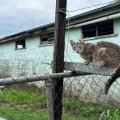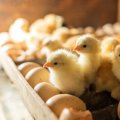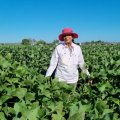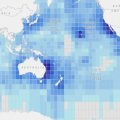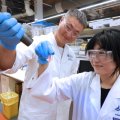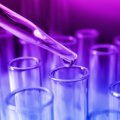Scientists have discovered that two common mango varieties contain natural compounds that may help to fight flab . . . in the part that most people throw away.
In two of three mango varieties examined in the study, scientists from The University of Queensland found it was the mango peel that demonstrated the biggest fat-reducing potential.
The detailed analysis of three mango varieties was part of a collaborative research project between the Queensland Alliance for Agriculture and Food Innovation (QAAFI) and UQ School of Pharmacy as part of an Australian Research Council Linkage Projects grant with the Queensland Government.
Professor Mike Gidley, who heads QAAFI’s Centre for Nutrition and Food Sciences, said it was not unusual for the outer skin of a fruit to have quite a different chemical composition to the flesh.
“We know mangoes have many excellent nutritional properties, but more work needs to done to understand the complex natural compounds found in these and other fruits,” he said.
“This research reminds us that we should be looking at the whole fruit when considering how to take advantage of natural goodness.
“Detailed chemical analysis of the skin and flesh is extremely valuable for mango growers and processors, who are always looking for new ways to value-add their fruit.”
In laboratory models, the study found that the peel from 'Irwin' and 'Nam Doc Mai' mangoes contained high concentrations of bioactives that inhibit development of human fat cells.
Professor Greg Monteith from the UQ School of Pharmacy said there were probably many reasons for this characteristic.
“A complex interplay of bioactive compounds unique to each peel extract is likely responsible for the difference, rather than just a single component,” he said.
The work was conducted by PhD student Mr Meng-Wong Taing and his study’s results could help growers develop mango varieties that actively help reduce obesity.
Obesity is associated with many chronic conditions such as diabetes, coronary heart disease and several cancers, including those of the breast and colon.
See “Mango Fruit Peel and Flesh Extracts Affect Adipogenesis in 3T3-L1 Cells”
Contacts: Professor Mike Gidley, Director, Centre for Nutrition and Food Sciences, Queensland Alliance for Agriculture and Food Innovation (07 3365 2145, Int: +61 7 3365 2145)
QAAFI Communications: Mobile: 0417 425 510
Note: This Food & Function paper was selected to feature this month on Chemistry World online.
.jpg)


